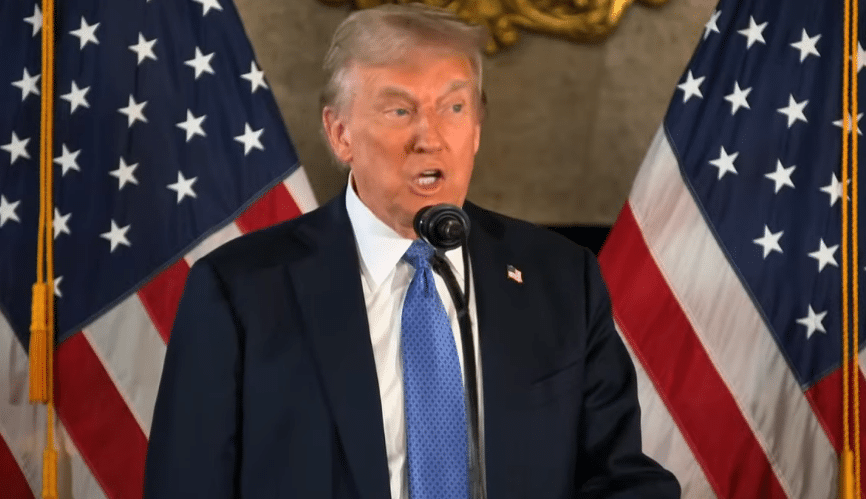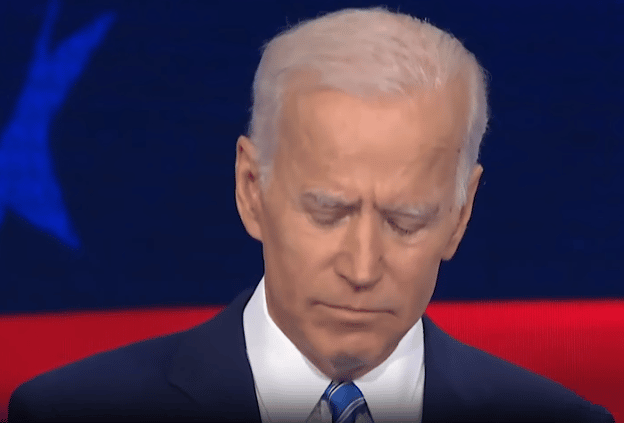As Congress Reconvenes, All Eyes On Budget Bill Needed To Enact Trump Agenda. Can Congressional Republicans Unite?

By Robert Romano
It is Jan. 3, and Congress is reconvening for its new session with the House closely divided after Republicans won 220 seats and Democrats won 215 seats (although with Matt Gaetz’ resignation that will be down to 219 Republicans) and the first order of business being to elect a new Speaker, adopt the House’s rules and then get to work on behalf of the American people.
Regardless of who the new Speaker is, with a newly minted Senate Republican majority — 53 Republicans to 47 Democrats — President-elect Donald Trump will have opportunities this session to enact his wide-ranging agenda on providing tax relief to American people, incentivizing boosts of production in energy and agriculture to lower prices, curtailing illegal immigration including finishing the border wall and getting the spiraling federal budget and deficit under control.
The vehicles for doing so will be the budget bill, the appropriations and/or omnibus spending bills, any continuing resolutions that come up and any debt ceilings that arise, the latter of which was reinstated on Jan. 1 and will likely be one of the first things Congress has to address this year.
The appropriations and/or omnibus bills, continuing resolutions and any expansion or temporary termination of the debt ceiling will require 60 vote thresholds in the Senate, and usually require a bipartisan consensus to some degree in order to enact.
The House could produce Republican-led legislation for those items, but the new Speaker will have to navigate key divisions that tend to divide the House GOP on spending bills — usually House conservative Republicans will vote against those to some degree, as occurred with the most recent continuing resolution that extended current spending until March 14. If they are unable to unite, Trump and the House will have far less leverage than they otherwise could have to deal with the Senate.
At that point, appropriations and/or omnibus spending bills, continuing resolutions and debt ceilings will be a combination of what moderate Republicans and Democratic leadership negotiate with President Trump after he is inaugurated on Jan. 20. That’s very much the status quo in Washington, D.C., where getting most important items through require some degree of bipartisan consensus thanks to the century-old Senate cloture and filibuster rules.
But there is also the budget bill, which unlike the other vehicles, can be passed with meager partisan majorities, and was used by Republicans in 2001 for tax cuts, and again in 2017 for more tax cuts, reopening Arctic National Wildlife Refuge for oil drilling and repealing the individual mandate under the Affordable Care Act. Similarly, Democrats used reconciliation in 2010 to pass key aspects of the Affordable Care Act and again in 2021 to enact the so-called Inflation Reduction Act that included green energy subsidies.
Generally, these pass along partisan lines with no supermajorities required, and so it will be up to House and Senate Republican leaders to unite their conferences to minimally get these done in 2025 and, if the opportunity permits, again in 2026. But with the House so closely divided, and special elections coming up in Florida and New York, Republicans might wish to get as much done as possible in the very first budget bill that comes up and before any members leave to join the Trump administration, leaving nothing to chance.
That means enact all of the tax cuts in President Trump’s agenda, build the wall, boost energy and agriculture production and include big reductions to discretionary spending and regulations. That can help bring costs down so that incomes have an opportunity to catch up to consumer prices and then the American people will have the much-needed relief they voted for in 2024.
But first Congressional Republicans have to unite. But can they? Stay tuned.
Robert Romano is the Vice President of Public Policy at Americans for Limited Government.
The Worst Year in History? Americans Say 2024 was A Terrible Year for the Country But are Hopeful for 2025

By Manzanita Miller
The past year was a pivotal one, in which we witnessed what appeared to be the imminent demise of the country we know shift course at the last minute. Americans largely agree the county was taken to the brink of disaster in 2024 but are hopeful about the year ahead.
Last year we had a sitting president who was largely incapable of continuing to run the country, a political class and media that were hiding that fact, we were on the brink of a possible world war, and political divides were as stark as ever.
The political establishment, in their desperate desire to keep President Donald Trump from a second term, anointed outgoing President Biden’s radical Vice President – a woman who was largely rejected by her own party four years ago – to lead the Democratic Party.
It appeared as if the political establishment, through their shrieks about “protecting democracy”, would stop at nothing to fundamentally transform our country into something unrecognizable in nearly every possible way.
And yet, facing a radical Harris-Walz presidency that would have fundamentally changed our country for the worse, we the people took the reins and turned the country just in time in a direction that strives to preserve freedom.
There is broad sentiment that not only are Americans largely supportive of the way President Donald Trump is handling his transition into office, but many people believe we narrowly escaped disaster as a country in 2024.
According to an end-of-year survey conducted by YouGov, Americans say 2024 was a terrible year for the country. By a resounding 33 points – 49 percent to 16 percent – Americans say 2024 was a terrible or bad year for the country, and just 16 percent say it was a good or great year.
Nearly 40 percent of the country says 2024 was one of the worst years in American history according to the survey. Sixty percent of Republicans, 33 percent of independents, and nearly a fifth of Democrats (19 percent) agree 2024 was one of the worst years in our nation’s history.
However, Americans are hopeful for the future – the public says 48 percent to 17 percent they believe the year ahead will be a good or great year for the country rather than a bad or terrible one.
Young people – who moved radically toward President Trump and the Republican Party in 2024 – are particularly optimistic about their lives over the next year. Americans under 30 say by 49 points – 56 percent to seven percent, that their lives will be better in 2025.
Americans are hopeful not only for the year ahead, but largely believe the country will improve over the next ten years, after a long grueling descent. By ten points – 36 percent to 26 percent – Americans say the next ten years will be better than the last ten years were.
The past year will go down in history as the year the people reversed course to save a nation teetering on the brink of collapse. We are far, far from where we need to be. It took decades of the doomed globalist experiment to reach the rock bottom of 2024, and it will take years to purge bloated bureaucracy, figure out solutions to the millions of illegals the Biden Administration brought in, and restore peace as a country.
Conservatives have won only a battle in the cultural war, and yet that battle proved to be significant. The next ten years require even stronger dedication to restoring sanity as a country. The good news is, the non-political class are now interested in a way out from the claws of globalism and cultural decay, and they are listening to alternatives.
Manzanita Miller is the senior political analyst at Americans for Limited Government Foundation.
To view online: https://dailytorch.com/2025/01/the-worst-year-in-history-americans-say-2024-was-a-terrible-year-for-the-country-but-are-hopeful-for-2025/

ALG urges election of Speaker Mike Johnson
Jan. 2, 2025, Fairfax, Va.--Americans for Limited Government President Rick Manning today issued the following statement urging House Republicans to reelect House Speaker Mike Johnson (R-La.) on Jan. 3:
"President Trump's entire Congressional agenda is at risk on day one of the new Congress when House Republicans decide whether to elect Trump-endorsed Speaker Mike Johnson or embark on yet another suicidal quest for the perfect Speaker. While it is understandable for many House conservatives to be disappointed that the past Congress did not do more to limit the size and scope of government, the only opportunity to move the aggressive Trump Make America Great Again agenda is through unity that will be forever shattered by a Speaker fight. Americans voted to end President Biden's crazy, leftist policies and to cut government's intrusive reach into their lives. If House Republicans want to legislatively end Biden's immigration disaster, they need to stay the course with Speaker Johnson. If House Republicans want to reinstate and expand job-creating tax cuts, they must stay the course with Speaker Johnson. If House Republicans want to truly permanently downsize the federal government, they need to stay the course with Speaker Johnson. However, if they are unwilling to get 75% to 80% of their agenda passed in search of a unicorn, they will engage in a quixotic Speaker fight chasing windmills rather than getting the job done."
To view online: https://getliberty.org/2025/01/alg-urges-election-of-speaker-mike-johnson/
